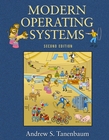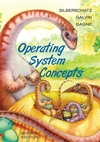CENG 328 Operating Systems
Spring 2005
Most
recent announcement: Jun17
TIME
|
MONDAY
|
TUESDAY
|
WEDNESDAY
|
|
8:40-10:30
|
|
|
CENG328(L2)
SUN
|
|
|
|
|
|
10:40-12:30
|
|
CENG328(L1)
SUN
|
|
|
|
|
12:40-14:30
|
|
CENG328(T2)A-319
|
|
|
|
|
14:40-16:30
|
|
|
CENG328(L3)
SUN
|
16:40-18:30
|
CENG328(T1)A-319
|
|
|
Announcements
Watch this space for the latest updates.
Last updated 17.Haziran.2005
14:50
Grade distribution is given.
June 16, 2005
15:31
Evaluation of the final exam is
completed. Grades are published on the announcement board. Lab grades
are available.
June 14, 2005
11:01
Final exam solutions is available.
June 13, 2005
12:12
Make-up exam date is June 14, 2005 at
14.00. The list is given (that I have doctor's written excuse).
Midterm:
Yaren Ilgaz
Arzu Fatoş Köseoğlu
B. Alper Sinanoğlu
M Burak Uytun
Final:
No any excuse I received.
May 17, 2005
16:08
I will not be available between May 18
and Jun 3. Do not hesitate to contact via email.
May 9, 2005
14:12
The grades for the quiz5 -8 are
published, see Course Schedule section.
May 9, 2005
14:02
The lecture notes for the thirteenth week
is published , see Course Schedule section.
May 4, 2005
13:01
Midterm exam solutions is available.
May 2, 2005
17:36
Final Exam time is changed as Jun 10,
2005 10.40-12.30.
May 2, 2005
12:55
The lecture notes for the twelveth week
is published , see Course Schedule section.
April 25, 2005
13:46
The lecture notes for the eleventh week
is published , see Course Schedule section.
April 18, 2005
15:47
The lecture notes for the tenth week is
published , see Course Schedule section.
April 11, 2005
16:22
The lecture notes for the nineth week is
published , see Course Schedule section. The
grades for the quiz4 is also published.
March 28, 2005
16:02
The lecture notes for the seventh week is
published , see Course Schedule section.
March 24, 2005
17:49
Necessary information for compiling your
modified java codes in Sun Lab is given. The results for the lab quizes are given, see Course
Schedule section.
March 22, 2005
14:59
The grades for the quiz1, quiz2, quiz3
are published, see Course Schedule section.
March 21, 2005
15:29
The lecture notes for the sixth week is
published , see Course Schedule section.
March 17, 2005
18:02
The midterm exam date is changed again ,
see Course Schedule section.
March 14, 2005
16:02
The midterm exam date is changed, see
Course Schedule section.
March 14, 2005
15:49
The lecture notes for the fifth week is
published , see Course Schedule section.
March 9, 2005
12:55
Necessary information for compiling your
modified java codes in Sun Lab is given.
March 7, 2005
00:19
The lecture notes for the fourth week is
published , see Course Schedule section.
March 2, 2005
15:59
Lab studies are modified, see Course
Schedule section.
February 28, 2005
14:52
The lecture notes for the third week is
published , see Course Schedule section. The
codes presented in the class is available.
:21.Şubat.2005
15:44
The lecture notes for the second week is published , see Course
Schedule section.
February 14, 2005
18:32:22
Lecture hours are changed, see the time
table. Midterm and Final exam dates are announced, see Course
Schedule section.
February 13, 2005
19:57
In the first lecture, there will be first
metting.
Overview
Ceng 328 is intended as a general introduction to the
techniques used to implement operating systems and related kinds of
systems software. Among the topics covered will be;
process management
(creation, synchronization, and communication);
deadlock prevention,
avoidance, and recovery;
memory management
techniques, main-memory management, virtual memory management
control of disks and
other input/output devices;
This course assumes familiarity with basic computer
organization (e.g., processors, memory, and I/O devices). You will
need to be able to program in Java / C (or C++) to perform the
assignments in the course.
Lecture Information
There are two groups for lecturing and three groups
for lab sessions, you may attend any one of the lecture hours but not
for lab sessions. Please attend your predefined lab sessions
regularly. The UNIX operating system will be introduced to you first
in the lab sessions , later some java or C codes will be executed to
study the operating system features and you will be responsible for
writing codes, to be graded.
In the beginning of the each lecture hour, you will
have a quiz (15 minutes) for the previos week's subjects. There won't
be any make-up for these quizes and they will have weight for the
final grading.
Important announcements will be posted to the
Announcements section of this web page above, so please check
this page frequently. You are responsible for all such announcements,
as well as announcements made in lecture.
Course Outline
Text Book
Required
Readings will be assigned in Modern
Operating Systems, Second Edition by
Andrew S. Tanenbaum, Prentice Hall, 2001.

Recommended
Another recently used text book that covers the
same material is Operating
System Concepts, 7th Edition by Abraham Silberschatz, Peter Baer
Galvin, Greg Gagne, John Wiley and Sons, January 2005.
This text is only recommended rather than required.
This book is useful for reference, for an alternative point of view.

Online References
Some materials are given.
Please inform me about the usefullness of the materials. Check
this place for updates.
Some useful C++ links can be found
here and
here.
Notes on Java.
The following references are available online at the Java
home site.
Grading Criteria
There will be a
midterm and a final exam, will count 20% and 40% of your grade,
respectively.
Quiz: 15% (worst of
the quizes will be discarded)
Lab: 15% (worst of
the labs will be discarded)
Attendance is
required and constitutes part of your course grade; 10%
Policies
Attendance
is not compulsory, but you are responsible for everything said in
class.
I encourage
you to ask questions in class. You are supposed to ask questions.
Don't guess, ask a question!
You may
discuss homework problems with classmates (although it is not to
your advantage to do so).
You can use
ideas from the literature (with proper citation).
You can use
anything from the textbook/notes.
The
code you submit must be written completely by you.
Course Schedule
The following schedule is tentative; it may be
updated later in the semester, so check back here frequently.
Week
|
Dates
|
Topic
|
Lecture Notes Acrobat
|
Quizes
|
Laboratory Studies
|
Lectures
|
|
1
|
February 14-15, 2005
|
First Meeting
|
NA
|
NA
|
html
|
pdf
|
NA
|
NA
|
2
|
February 21-22, 2005
|
Introduction
|
pdf
|
NA
|
html
|
pdf
|
NA
|
NA
|
3
|
February 28- March 1, 2005
|
Intro. &
Processes and Threads
|
pdf
|
html
|
pdf
|
grades
|
html
|
pdf
|
NA
|
NA
|
4
|
March 7-8, 2005
|
Processes and
Threads
|
pdf
|
html
|
pdf
|
grades
|
html
|
pdf
|
Quiz
|
Grades
|
5
|
March 14-15, 2005
|
Processes and
Threads
|
pdf
|
html
|
pdf
|
grades
|
html
Grading Lab
|
pdf
|
NA
|
NA
|
6
|
March 21-22, 2005
|
Processes and
Threads Deadlocks
|
pdf
|
html
|
pdf
|
grades
|
html
|
pdf
|
Quiz
|
Grades
|
7
|
March 28-29, 2005
|
Deadlocks and
Memory Management
|
pdf
|
html
|
pdf
|
grades
|
html Grading
Lab
|
pdf
|
|
|
9
|
April 11-12, 2005
|
Memory Management
|
pdf
|
NA
|
html
|
pdf
|
|
|
10
|
April 18-19, 2005
|
Memory Management
and Input / Output
|
pdf
|
html
|
pdf
|
grades
|
html
Grading Lab
|
pdf
|
|
|
11
|
April 25-26, 2005
|
Input / Output
|
pdf
|
html
|
pdf
|
grades
|
html
|
pdf
|
|
|
12
|
May 2-3, 2005
|
File Systems
|
pdf
|
html
|
pdf
|
grades
|
html
Grading Lab
|
pdf
|
|
|
13
|
May 9-10, 2005
|
File Systems
|
pdf
|
html
|
pdf
|
grades
|
html
|
pdf
|
|
|
14
|
May 16-17, 2005
|
File Systems
and Recitation
|
pdf
|
html
|
pdf
|
grades
|
html
Grading Lab
|
pdf
|
|
|
Exams
|
|
8
|
April 8, 2005 11.40-13.30 406-407-408
|
Midterm
|
pdf
|
Lab
grades
|
|
|
Final
|
Jun 10, 2005 10.40-12.30
|
Final
|
pdf
|
|
|
|
![]() (Modern Operating Systems Simulators)
is a collection of Java-based
simulation programs which illustrate key concepts presented in the
text Andrew S. Tanenbaum,
Modern
Operating System, Second Edition (Prentice-Hall,
2001). The software is designed for students and instructors using
this text.
(Modern Operating Systems Simulators)
is a collection of Java-based
simulation programs which illustrate key concepts presented in the
text Andrew S. Tanenbaum,
Modern
Operating System, Second Edition (Prentice-Hall,
2001). The software is designed for students and instructors using
this text.
